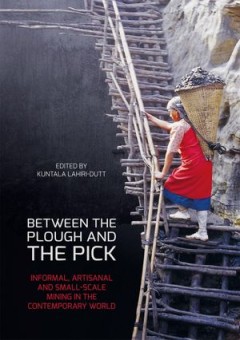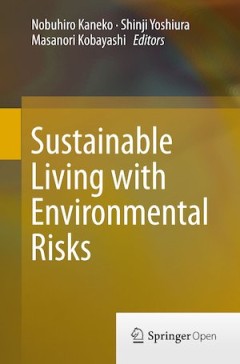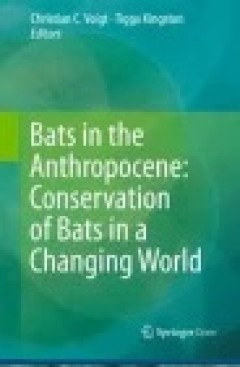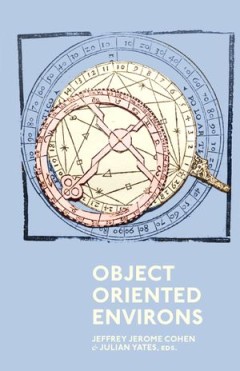Filter by

Between the Plough and the Pick Informal, artisanal and small-scale mining i…
Between the Plough and the Pick deepens our understanding of informal, artisanal and small-scale mining, popularly known as ASM. The book engages with wider scholarly conceptualisations of contemporary global social, agrarian and political changes, whilst underlining the roles that local social‑political-historical contexts play in shaping mineral extractive processes and practices. It shows …
- Edition
- -
- ISBN/ISSN
- 9781760461713
- Collation
- -
- Series Title
- -
- Call Number
- -

Atlas of Butterflies and Diurnal Moths in the Monsoon Tropics of Northern Aus…
Northern Australia is one of few tropical places left on Earth in which biodiversity—and the ecological processes underpinning that biodiversity—is still relatively intact. However, scientific knowledge of that biodiversity is still in its infancy and the region remains a frontier for biological discovery. The butterfly and diurnal moth assemblages of the area, and their intimate associatio…
- Edition
- -
- ISBN/ISSN
- 9781760462321
- Collation
- -
- Series Title
- -
- Call Number
- -

Sustainable Living with Environmental Risks
We are not free from environmental risks that accompany the development of human societies. Modern economic development has accelerated environmental pollution, caused loss of natural habitats, and modified landscapes. These environmental changes have impacted natural systems: water and heat circulation, nutrient cycling, and biodiversity. These changes in natural systems degrade ecosystem serv…
- Edition
- -
- ISBN/ISSN
- 9784431548041
- Collation
- -
- Series Title
- -
- Call Number
- -

Beyond the Limits to Growth New Ideas for Sustainability from Japan
At a time when contemporary challenges seem to many to be insurmountable, this book offers an optimistic view of the future and provides a road map for societies to get there. Drawing upon extensive research and many years as a thought leader in environmental and sustainability issues in Japan and internationally, Hiroshi Komiyama analyzes the most pressing challenges to the attainment of susta…
- Edition
- -
- ISBN/ISSN
- -
- Collation
- -
- Series Title
- -
- Call Number
- -

Bats in the Anthropocene Conservation of Bats in a Changing World
This book focuses on central themes related to the conservation of bats. It details their response to land-use change and management practices, intensified urbanization and roost disturbance and loss. Increasing interactions between humans and bats as a result of hunting, disease relationships, occupation of human dwellings, and conflict over fruit crops are explored in depth. Finally, contribu…
- Edition
- -
- ISBN/ISSN
- 9783319252209
- Collation
- -
- Series Title
- -
- Call Number
- -

Shadowing The Anthropocene Eco-Realism For Turbulent Times
A spectre is haunting humanity: the spectre of a reality that will outwit and, in the end, bury us. “The Anthropocene,” or The Human Era, is an attempt to name our geological fate – that we will one day disappear into the layer-cake of Earth’s geology – while highlighting humanity in the starring role of today’s Earthly drama. In Shadowing the Anthropocene, Adrian Ivakhiv proposes a…
- Edition
- -
- ISBN/ISSN
- 9781947447875
- Collation
- -
- Series Title
- -
- Call Number
- -

Oceanic New York
This volume comprises a three-fold object, Book and Ocean and New York City. If this Book were Ocean, how would it feel between your fingers? Wet and slippery, just a bit warmer or colder than the air around it, since the Ocean is our planet’s greatest reservoir of heat, a sloshing insulator and incubator girdling our globe. If its pages were New York City, how would they abrade your imaginat…
- Edition
- -
- ISBN/ISSN
- 9780692496916
- Collation
- -
- Series Title
- -
- Call Number
- -

Object Oriented Environs
Object Oriented Environs is the lively archive of a critical confluence between the environmental turn so vigorous within early modern studies, and thing theory (object oriented ontology, vibrant materialism, the new materialism and speculative realism). The book unfolds a conversation that attempts to move beyond anthropocentrism and examine nonhumans at every scale, their relations to each ot…
- Edition
- -
- ISBN/ISSN
- 9780692642030
- Collation
- -
- Series Title
- -
- Call Number
- -

Manifesto for Living in the Anthropocene
The recent 10,000 year history of climatic stability on Earth that enabled the rise of agriculture and domestication, the growth of cities, numerous technological revolutions, and the emergence of modernity is now over. We accept that in the latest phase of this era, modernity is unmaking the stability that enabled its emergence. Over the 21st century severe and numerous weather disasters, scar…
- Edition
- -
- ISBN/ISSN
- 9780988234062
- Collation
- -
- Series Title
- -
- Call Number
- -

Climate change and the oil industry Common problem, different strategies
Multinational corporations are not merely the problem in environmental concerns, but could also be part of the solution. The oil industry and climate change provide the clearest example of how the two are linked; what is less well-known is how the industry is responding to these concerns. This volume presents a detailed study of the climate strategies of ExxonMobil, Shell and Statoil. With an i…
- Edition
- -
- ISBN/ISSN
- 9780719065583
- Collation
- -
- Series Title
- -
- Call Number
- -
 Computer Science, Information & General Works
Computer Science, Information & General Works  Philosophy & Psychology
Philosophy & Psychology  Religion
Religion  Social Sciences
Social Sciences  Language
Language  Pure Science
Pure Science  Applied Sciences
Applied Sciences  Art & Recreation
Art & Recreation  Literature
Literature  History & Geography
History & Geography